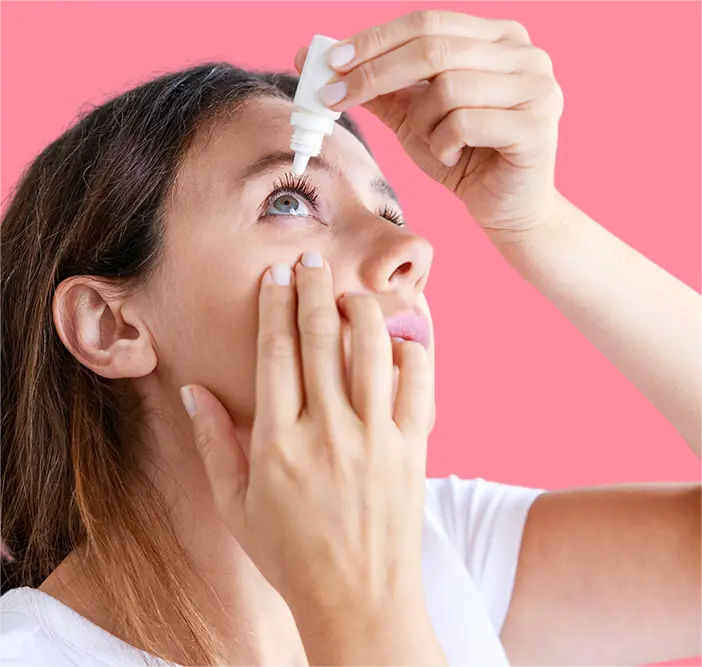Sjögren's syndrome is a chronic autoimmune disease that primarily affects the glands responsible for producing tears and saliva. Women, especially middle-aged women, are at greater risk of developing this condition. Symptoms are often overlooked in the early stages, leading to delayed diagnosis and treatment.
What is Sjögren's syndrome in women?
Sjögren's syndrome is an autoimmune disorder in which the immune system attacks secretory glands, such as the tear and salivary glands, causing dry eyes and mouth.
The syndrome may be primary, occurring alone, or secondary, associated with other autoimmune diseases such as lupus or rheumatoid arthritis. The effects of this syndrome may extend to other organs in the body, such as the kidneys and lungs.
Causes of Sjögren's syndrome in women
The exact causes of the condition are unknown, but several factors are known to cause it, including:
- Genetic factors, meaning a family history of autoimmune diseases.
- Viral or bacterial infections, which trigger the immune system to attack the body.
- Hormonal imbalances are a common cause of its prevalence among women.
- Other autoimmune diseases, such as lupus and rheumatoid arthritis, are also common.
Symptoms that appear in women when infected

Symptoms of Sjögren's syndrome in women vary and may affect the entire body, including:
- Dry eyes, a gritty or burning sensation.
- Dry mouth and difficulty swallowing.
- Recurrent tooth decay.
- Chronic fatigue and exhaustion.
- Swelling of the salivary glands.
- Joint and muscle pain.
- Dry skin, nose, and vagina.
Methods for Diagnosing Sjögren's Syndrome in Women
Diagnosing Sjögren's syndrome in women requires a clinical evaluation that includes:
- Blood tests to check for antibodies.
- Dry eye tests, such as the Schirmer test.
- Salivary gland biopsy to check for inflammation.
- Saliva acupuncture test to assess the extent of dryness.
Possible Complications of Sjögren's Syndrome
If the syndrome is not treated properly, it can lead to several complications, such as:
- Tooth decay and loss. Recurrent eye infections.
- Breathing problems due to dry lungs.
- Kidney or liver inflammation.
- Possibility of lymphoma.
Medications used to treat Sjögren's syndrome

Several medications are available to relieve symptoms and control immune system activity, such as:
- Eye-moisturizing drops and ointments.
- Saliva substitutes or saliva-stimulating gums.
- Anti-inflammatory medications such as hydroxychloroquine.
- Immunosuppressants such as methotrexate or cortisone.
- Biological immunomodulators in severe cases.
Important warning: Do not take any medication without consulting a specialist.
Other treatments used alongside medications
Other treatments should be used alongside medications to speed up response and improvement, such as:
- Physiotherapy to improve joint pain.
- Nutritional therapy by following a diet rich in omega-3s and reducing sugars.
- Psychological support to address anxiety and chronic fatigue.
Can women prevent Sjögren's syndrome?
There is no sure way to prevent it, but the risk of symptoms can be reduced by:
- Maintaining good oral and eye health.
- Reducing stress.
- Regular follow-up with your doctor.
- Avoiding smoking.
- Treating any immune diseases early.
Does Sjögren's syndrome affect a woman's daily life?
Yes, Sjögren's syndrome can affect a woman's daily life due to:
- Chronic fatigue.
- Psychological changes such as anxiety or depression.
- Impact on sexual intercourse due to vaginal dryness.
- Reproductive problems.
Do medications used to treat Sjögren's syndrome affect the fetus during pregnancy?
Yes, some medications used to treat Sjögren's syndrome, such as immunosuppressants, can affect the fetus during pregnancy, causing birth defects. Therefore, it is important to consult a doctor before planning a pregnancy or as soon as it occurs.
Article Summary
Sjögren's syndrome is a chronic autoimmune condition that affects women more than men. It affects the tear and salivary glands, causing dry eyes and mouth. Its causes include genetics, infections, and hormonal factors, and its symptoms range from mild dryness to severe organ damage.
Treatment involves immunosuppressive medications and supportive measures such as maintaining oral and eye health, following a healthy diet, and engaging in physical therapy for joints. Although it can affect a woman's quality of life, early diagnosis and lifestyle modification contribute to improved outcomes and a safe, normal life for affected women.